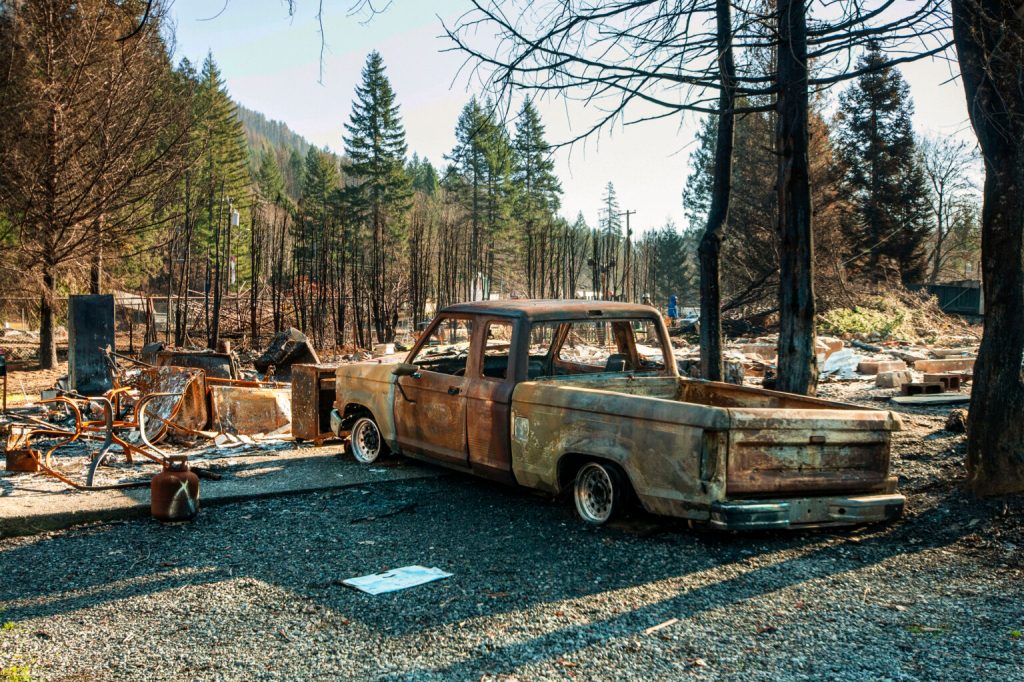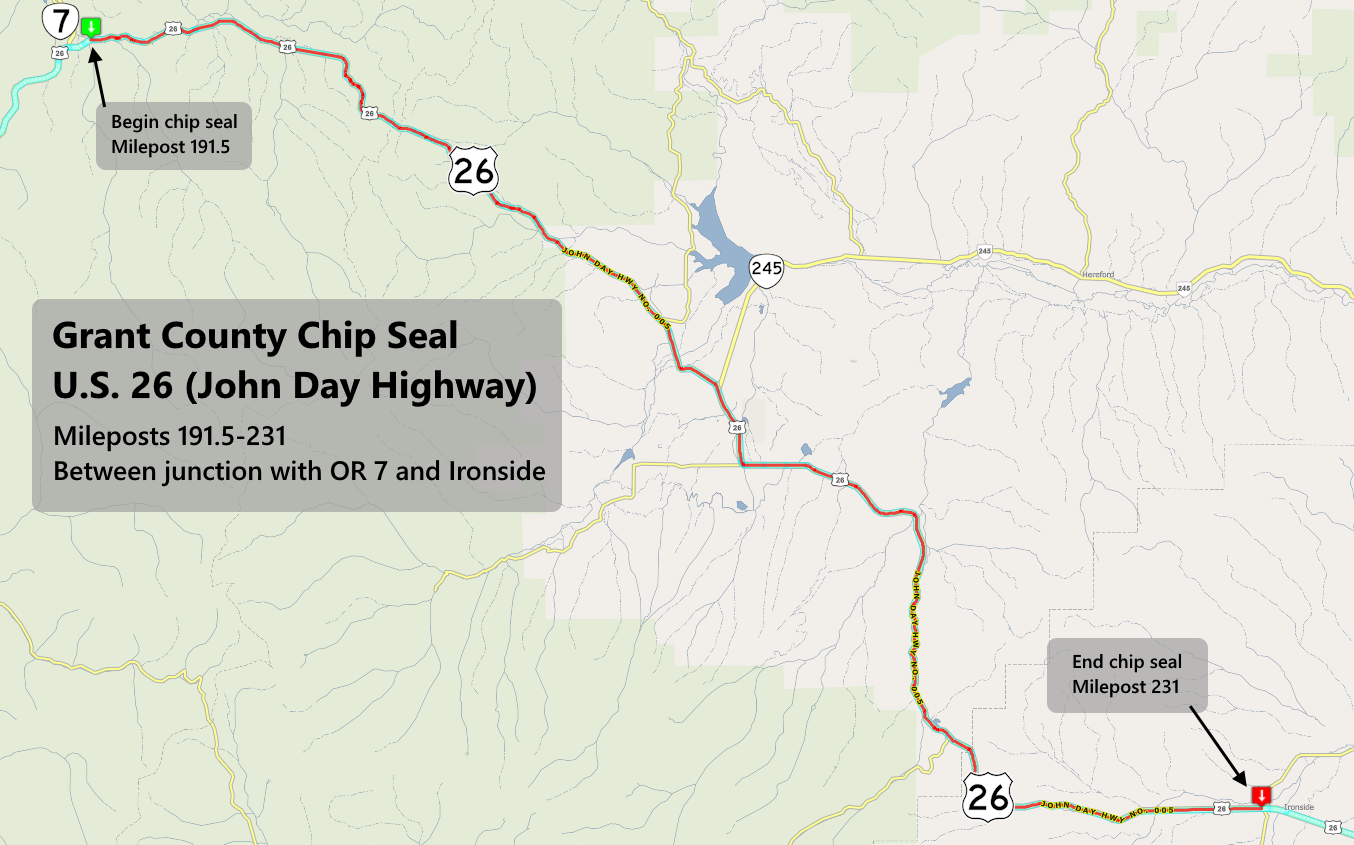Proposal to impose penalties on private utilities delaying wildfire lawsuits quietly moves forward
Published 10:48 am Wednesday, April 16, 2025

- Ash and debris along Oregon Route 22 from property destroyed by the 2020 Labor Day weekend wildfires. (Photo courtesy of the Oregon Department of Transportation/Flickr)
Fred Cuozzo barely made it out of the South Obenchain Fire that burned through his home, barn, pumphouse and garage in Eagle Point, north of Medford, on Sept. 8, 2020.
Three years later, PacifiCorp — owner of Oregon private utility Pacific Power — was found by a jury to have been reckless and negligent in causing that fire and three others. In January 2024, a jury ordered the utility company to pay millions in damages to Cuozzo and nine other survivors, among the first group in an ongoing class action lawsuit.
Cuozzo still has not seen that settlement money because PacifiCorp is appealing the jury’s verdict. In three months, Cuozzo turns 80. He fears he might not in his lifetime see that money — money he needs to rebuild.
“I’ve been waiting almost five years since my home, contents and four other structures burned up,” he said. “I think they’re just waiting, trying to wait people out, and they can get tired of waiting or die, right?”
The Oregon Legislature is considering a bill that would do something about that, and it’s moving through the session with bipartisan support and little fanfare.
Senate Bill 926, sponsored by state Sen. David Brock Smith, R-Port Orford, and co-sponsored by Democratic state Sens. Jeff Golden of Ashland and James Manning of Eugene, would impose some consequences on PacifiCorp, and the state’s two other investor-owned utilities, for delaying settlements and prolonging litigation if they are found to have recklessly or negligently caused a wildfire.
On April 8, the Senate Judiciary Committee’s four Democrats voted to pass it out of the committee and onto the Senate floor, recommending they also vote yes. The committee’s two Republicans opposed the bill. The larger Senate vote has not yet been scheduled.
Golden said he only recently learned about the bill and signed on as a sponsor.
“I am interested in faster settlements. I’m not interested in rate increases or favorable treatment (for utilities) until people who have been waiting for a remedy get it,” he said.
Unlike other bills this session related to private utilities and wildfire risk that have been more controversial — including bills to shield utilities from some financial liabilities, and one bill that would have prohibited utilities from raising rates if they had ongoing wildfire suits — Senate Bill 926 appears to be meeting little friction. Only one person spoke at its first public hearing in March: a father of three in Albany who supports the bill and expressed frustration over his rising electricity costs. Brock Smith, the bill’s chief sponsor, did not give testimony during the bill’s first hearing or in the run-up to the judiciary committee’s vote. He also didn’t respond to calls, emails or texts about the bill.
Utility companies oppose the bill. Portland General Electric lobbyist Greg Alderson called it “problematically broad” in a letter submitted to the committee two days after the hearing.
PacifiCorp spokesman Simon Gutierrez, said in an email to the Capital Chronicle on Tuesday that the company strongly opposes the bill, though it has not yet submitted any formal testimony against it.
Imposing consequences
Senate Bill 926 would prohibit Oregon’s private investor-owned utilities from recovering wildfire lawsuit costs from ratepayers — including fines, fees and settlements — if the company was found by a court or jury to have acted recklessly or negligently in causing the fire. It would also prohibit companies from raising rates to pay for repairing or replacing wildfire-damaged infrastructure if the company is found by court or jury to have been at fault for the fire.
Electric utilities indebted by a wildfire judgment would not be allowed to send dividends, income, interest or profits to corporate owners and shareholders and would pay 9% interest on any damages awarded to wildfire victims starting from the date of the fire, rather than the date the damages are awarded.
The bill would apply retroactively to all powerline-ignited wildfires since Jan. 1, 2020. For a company like PacifiCorp, that could mean millions in interest on cases that have been awaiting trial for years, and limits to the utilities’ now annual requests to raise rates.
“It is astounding that Senate leadership in the Oregon legislature is seeking to insert themselves into ongoing litigation involving PacifiCorp by retroactively imposing costs in the millions under a scheme that would apply to no other business in the state,” Gutierrez said.
He added that in light of a recent report from the Oregon Department of Forestry that concluded PacifiCorp did not start fires it was previously found to have started in the Santiam Canyon, the bill should be reconsidered.
That state report refutes statements from first responders from the U.S. Forest Service and months of trial testimony about the origins of the fires, and is unlikely to be admissible in PacifiCorp’s appeal because the company in 2023 moved to exclude all government reports at trial.
This article was originally published by Oregon Capital Chronicle and used with permission. Oregon Capital Chronicle is part of States Newsroom and can be reached at info@oregoncapitalchronicle.com.





